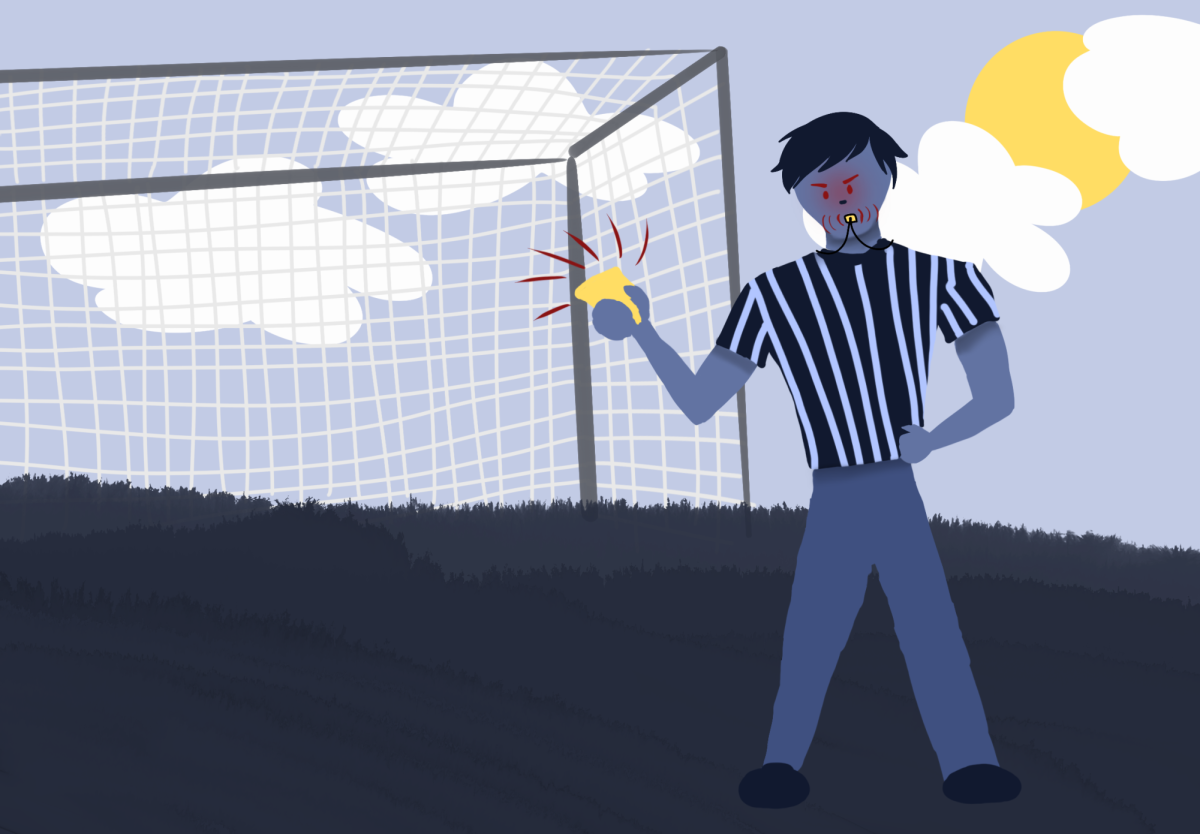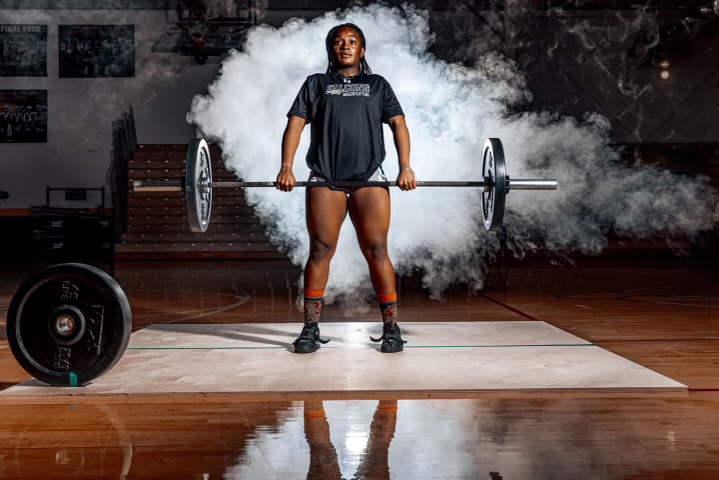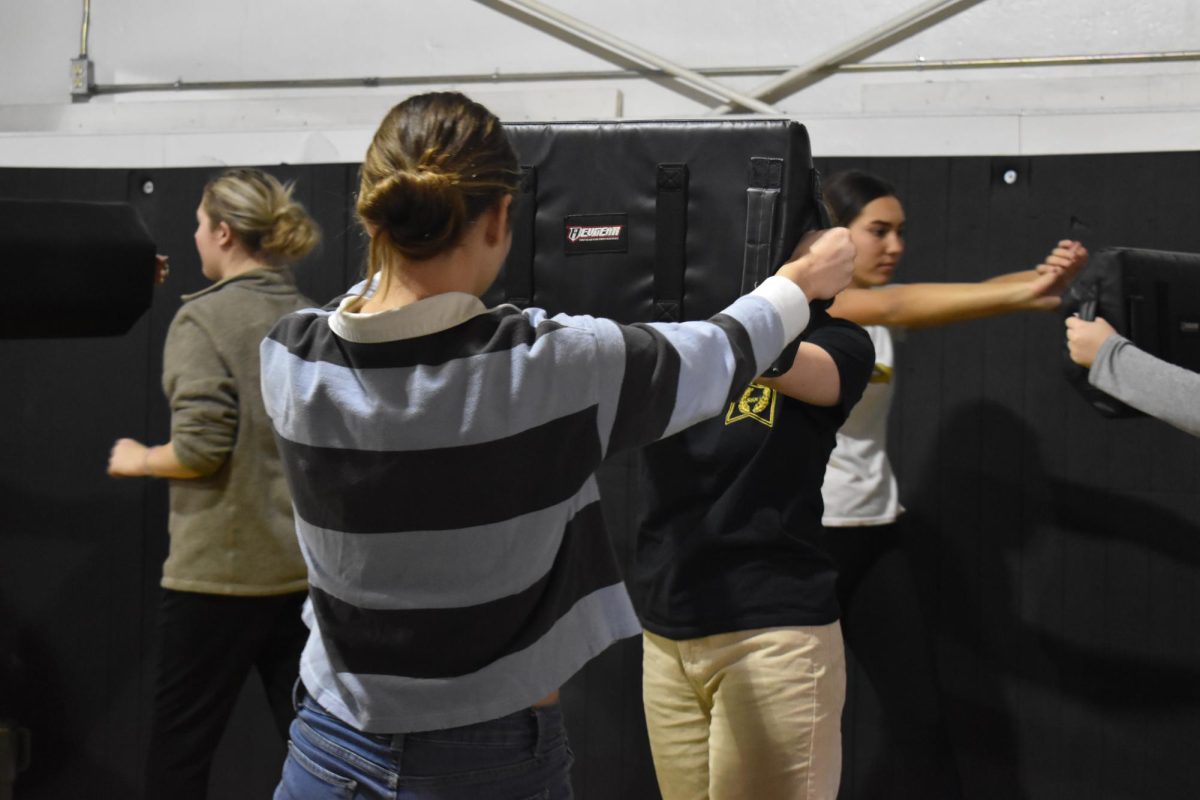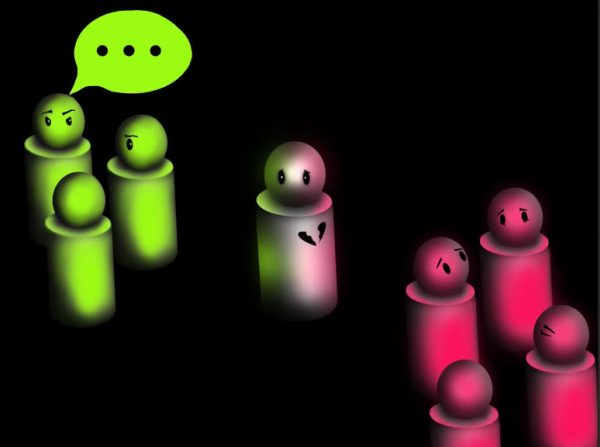Does your vote really count?
When you vote for the president in a few days, is it YOU or the electoral college that really counts? We dug deep to understand the mechanics of this controversial American institution.
The democratic process in the US is a little more complex than you thought. Art by Sarabeth Wester
Does your vote actually count? Well, it does, and it doesn’t. Many people don’t know (or don’t remember) that the president is not technically elected by the popular vote, but rather by the electoral college. Knowing this and what it implies is important for all Americans.
So, what is the electoral college, really?
As November 3rd is approaching, the race for the 2020 election is getting closer and closer. With the coronavirus and the continuation of rallies and protests for racial justice sweeping our nation, this election is one of the most important decisions of our lifetimes.
Although only a small portion of our school population is eligible to vote this November, it is still important to understand how presidential elections work.
One of the biggest election misconceptions is in regard to how votes are actually counted and distributed to each candidate. Yes, all eligible voters go to the voting polls on election day, and every vote is counted for each candidate. This is called the popular vote.
What might be a surprise to some that the overall vote from all voters across the country isn’t what ultimately decides the winner of the presidential election.
When our founding fathers wrote our constitution, they had just won their independence from Britain. There was a general distrust of the government as the fathers did not want this newly found country to go down the same road as the British monarchy. Part of the founders believed that Congress should select the president as they worried the citizens would not be fully informed about the candidates, especially those in rural areas.
Another group feared that allowing Congress to select the leader did not put the power in the hands of the citizens, so they compromised on creating a separate group of representatives known as the electoral college.
Patrick Whelan, Social Studies Department Chair at Saint Stephen’s, explained how originally, the electoral college was established in order to help unify the states. “They ran into tension reflected as separate entities and not as the pool of a greater whole as the United States of America.” he said. The electoral college was used as a way to bring the states together to vote for their next commander chief.
Each of the fifty states has electors that are a part of the electoral college. The number of electors varies depending on the population of the state. The more people who live in the state, the more electors that state will have to represent them in the electoral college. The electoral voters are determined by the number of representatives in congress, which is based off of the state’s population, plus the two senators that every state has.
For example, states with a large population such as California have 55 electors since they have 53 representatives in congress and 2 senators. Our state of Florida has 27 members in congress plus 2 senators which means we have a total of 29 electors. Florida is considered on the larger end of the scale when it comes to electoral votes compared to states such as Wyoming and Alaska that only have 4 electoral votes due to their significantly smaller population.
This concept ensured that the rural, underpopulated states would receive representation and certainly attention by the president as they would need to win many of those states, not just the populous ones.
When voters cast their decision on election day, their votes are tallied. If the majority of votes for the state are for the republican candidate, then their electoral votes go towards the republican candidate. If the majority are for the democratic candidate, then the state’s electoral votes will count towards the democratic candidate.
There are a few exceptions. In most states, whatever the majority of votes for each state are casted for, the electors cast their vote for that candidate. However, in Maine and Nebraska, their state government has passed laws that allow their electoral votes to be split between both nominees and not just one candidate depending on the percentage of votes for the nominees.
Swing states typically include Florida, Colorado, Iowa, Michigan, Minnesota, Nevada, New Hampshire, North Carolina, Ohio, Pennsylvania, Virginia, and Wisconsin. These states seem to change from year to year in favor of either of the two parties.
Florida is considered a state that can completely change the results of the election. In many elections, the winner of Florida actually became the president.
In the more recent presidential elections, there has been a debate on whether or not we should keep the electoral college, or only use the popular vote to decide who the next President will be.
In 2000, the election was extremely close. The candidates included George W. Bush, son of former republican president, George H.W. Bush, versus Al Gore the vice president under former democratic president, Bill Clinton.
Gore had approximately 50,996,582 votes while his opponent, Bush, had only 50,456,062 votes. The election counting process continued for weeks with Florida at ground zero as election officials scrutinized thousands of ballots. The US Supreme Court finally stepped in and at the end of the recount, Bush won the popular vote in Florida by less than 600 votes, thereby winning all of Florida’s electoral votes and winning the presidency.
Most recently in the 2016 presidential election, although Hillary Clinton and Donald Trump were close in the polls just prior to the election, Clinton won the popular vote with 65 million while Trump received 62 million votes. Although Clinton won the popular vote, she didn’t win the election. Since the electoral college determines the winner, Trump ultimately won the election since he managed to win 306 electors while Clinton received only 232 electoral votes. 270 out of the 538 electoral votes are required to receive the nomination.
The results of the 2016 election came as a surprise to many Americans as it was projected that Clinton would win by a landslide. The result of Trump winning the electoral college and becoming the president elect is due to battleground or swing states that can sometimes be hard to predict. These are states that can vary in their support for either party each election year or the percentage of votes for each candidate is typically very close. Some years they might be favorable for the republican nominee but some years they lean democrat.
Candidates like it because it allows them to target where they are going to do their campaigning… but people should want to be heard everywhere
— David Ruemenapp
This has raised contersvery as some have suggested abolishing the electoral college and transitioning to a different type of voting system such as solely using the popular vote. AP United States History teacher, David Ruemenapp, explained the endeavor and process that it would take for this to happen. “Since it hasn’t happened yet, I don’t think it will ever happen in the near future due to the tradition that it brings,” he said.
Whelan added, “To undo would require a constitutional amendment. It would have to be an example of true unjustness such as women suffrage.” As he explained that he is not opposed to this, he doesn’t believe that it meets the standard yet. He brought up the hesitation and concern it would bring especially if it would target or favor one political party or candidate over another. “In some ways it protects the aspects of election security as it is difficult to change the outcome in all 50 states as a whole.”
“Candidates like it because it allows them to target where they are going to do their campaigning… but people should want to be heard everywhere,” said Ruemenapp. Since large states have more power in voting, it forces presidential candidates to spend more time in the more populated areas and less time in less populated states.
As the 2020 election quickly approaches, both Joe Biden and Donald Trump continue to rally voters for their support. This election is one of the most important in the history of the United States. Florida and other key battlegrounds states will play a major importance and role in determining the next commander in chief of our country. Whoever our next president is, they will decide the fate of our country when it comes to making big decisions such as how to handle global crises including Covid-19, racial justice and equality throughout the nation and the world.
Even if you are unable to vote in this upcoming election, it is still important to understand the structure of the electoral college and how votes are counted. If you are able to vote in the 2020 election, make sure you vote. It is your duty and right as an American citizen to vote. So go out and vote as every vote counts.

Lauren Schindler is a senior at Saint Stephen’s. She is returning for her second year on The Gauntlet and enjoys cheerleading and hanging out with friends....

Sarabeth Wester is a senior on The Gauntlet with four years under her belt of hard work in the newsroom as our Creative Director. Her favorite color is...




























































Ron McEwan • Nov 4, 2020 at 6:09 pm
Excellent article. Lauren has obviously researched this subject and has fully grasped this concept.
Many people are totally confused with the electoral college vote being the deciding vote for our next President.
Well done Lauren.
Hildegard Muehlbach • Nov 4, 2020 at 6:03 pm
Excellent article, Lauren Schindler!
Great job!